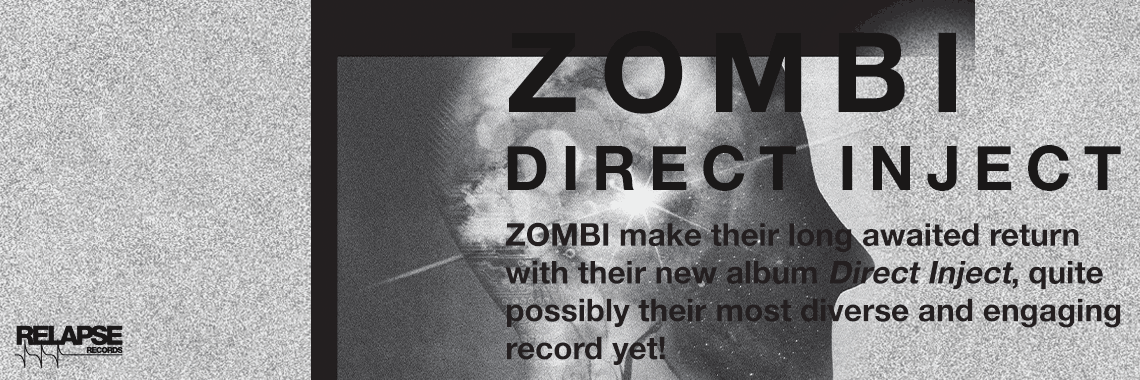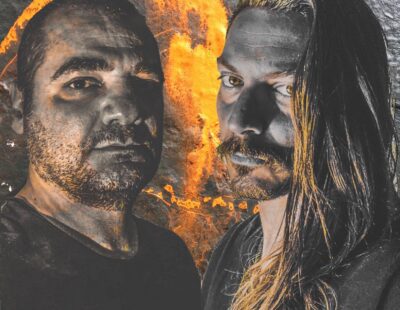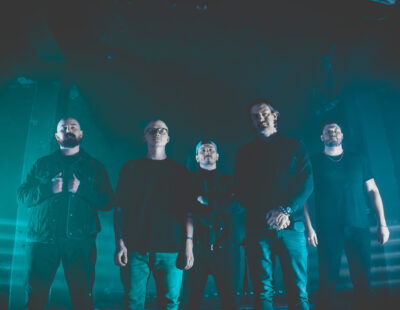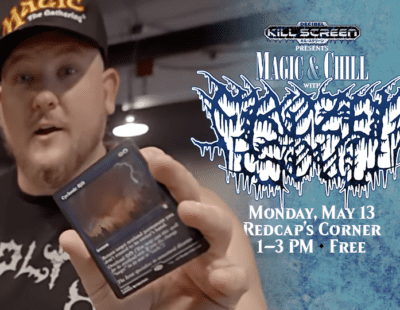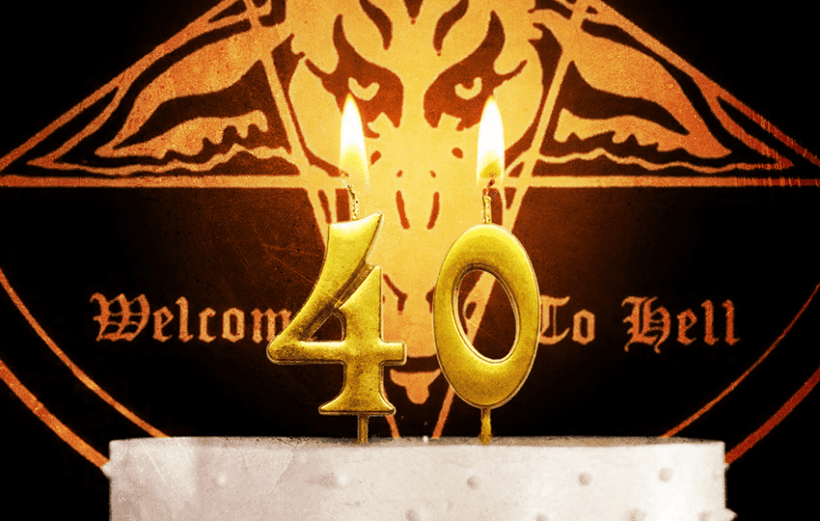
Imagine, if you will, the world of 1981. A film called Raiders of the Lost Ark takes over the box office. A small, virtually unknown company called Microsoft creates a new operating system for IBS computers. A mogul named Rupert Murdoch starts buying news properties. A politically ascendant evangelical group called the Moral Majority pushes the Republican party rightwards in America. In England, a young woman named Diana Spencer marries Prince Charles in a spectacle watched by about half the planet. Hair metal is born with Motley Crue’s debut, Too Fast For Love. Ozzy Osbourne continues his post-Sabbath reinvention with Diary of a Madman, and Iron Maiden records Killers, their second and final studio album with the talented but troubled Paul Di’Anno.
It was a simpler time, a time when a record could send cultural and musical shockwaves, a time when the lack of not only social media but any handheld device outside of a Walkman allowed bands to cultivate mystery. One of the most significant shockwaves of the year – if not the entire decade – was Welcome To Hell, Venom’s debut album. The British band — bassist and vocalist Conrad “Cronos” Lant, guitarist and songwriter Jeff “Mantas” Dunn, and drummer Tony “Abaddon” Bray — caused a few waves with their debut single In League With Satan/Live Like An Angel on Neat Records. That wave became a full-on tsunami when Venom finished and released Welcome To Hell (for a detailed history of the making of the album featuring all three original members read Adem Tepedelen’s Hall of Fame story, available in Decibel‘s second HOF anthology or in a back issue).
No one was prepared for the record, especially not parents who found it in their kid’s bedrooms. Metal constantly blurred the lines and toyed with controversial themes, but Venom moved the goalposts outside the arena. The songs didn’t toy with evil and vice but rather endorsed it on “Witching Hour,” “One Thousand Days In Sodom” and the title track. “In League With Satan” – the menacing, tribal centerpiece of the record — was a defiant middle finger not just to everyday society but even tastemakers in the scene that had no clue a revolution was underway: “I’ve got no one to tell me/what’s wrong or right.” To this day its bestial simplicity is a thing of beauty. As alienating as the music could be it had an infectiousness one might associate with pop. The album was dark and angry and even primitive but no one could deny that it was also catchy. This allure – the thing that makes fans replay songs until they burn circuits in neural pathways – became a hallmark of Venom’s best music.
It is impossible to quantify the effect that Welcome To Hell had on heavy metal but it’s safe to say the music we know and love would not exist in its current form without this record. Every band in the second wave of Norwegian black metal built on Venom’s aesthetic. Venom’s low-fi but catchy delivery is heard to this day in post-2000 Darkthrone, Midnight, Detroit sleaze bruisers Shitfucker and — ahem — legions of other bands. Welcome To Hell caused people to form bands, pick up guitars and shock their parents and peers: Tom Warrior started Hellhammer after hearing Venom and Metallica’s first notable tour was supporting Venom. The album introduced the radical idea that virtuosity is unnecessary to make a great record and might even be a liability. Welcome To Hell is a hydra; cut off one head and two more will form in its place. That’s true, even closing on a half-century.
Ten years ago, when the album turned 30, I wrote the following elsewhere: “Welcome To Hell, an album cobbled together by three English misfits with rudimentary musical skills, is one of the few metal records that changed the world.” The passage of another decade has offered more proof that Welcome to Hell is timeless and one of the canonical works and sacred relics of this thing we call heavy metal. To celebrate, we spoke to Venom founding member Dunn (now playing some of these classics, later Venom material, and new songs with Venom Inc.) about his memories and the legacy of Welcome To Hell. We don’t know the exact date the album was released: some claim December 1, others December 6, and still others the 12th. Dunn isn’t able to confirm an official release day so we’ll go with today. Needless to say, the birthday of this watershed record should be celebrated for an entire month. Thank you to Venom for blazing a trail we all continue to follow.
How does it feel to hear that your first record is 40? Welcome To Hell is officially middle-aged.
Fucking hell (laughs). Let’s put it this way: I recorded it when I was 20, and now I’m 60. The thing that amazes me is that people still want to know about it. They still want to talk about it. That piece of vinyl divided people, brought people together, shook people, opened people’s eyes, awakened people, stirred something inside people. And it was just a piece of plastic that was meant to be a series of demos. It just blows my mind. I can still remember walking into Impulse (Studios) with four 12-inches. Before that, we did the single In League With Satan/Live Like an Angel. David Wood (Impulse and Neat Records owner) shouted: “Can I have a word, boys?” He then said: “do you have enough songs for an album?” We were probably two or three songs short, although “Welcome To Hell” was in progress. But what young band is going to turn around and say we don’t have enough songs? “Album” and “LP” are magic words.
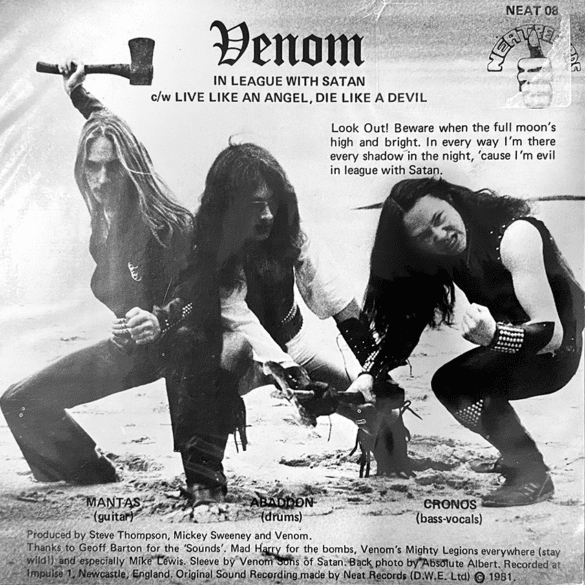
We got three days, and that was it. The Neat Records studio was so basic. We recorded the album on 24 track tape already used for a prior recording. There was no new tape!
Conrad was there (at the studio) for a youth opportunity job. He was learning bits and pieces of the business. It was a way for someone to learn a trade, and the government would give the company so much money every week. He bugged Wood for ages until he agreed to record us. I’m still convinced that Wood pressed 500 or maybe 1,000 copies of that first single and threw it out in the world and waited for the rejections to come back so he could tell us to fuck off. Of course, that didn’t happen. Why? No one will ever know. I will say that with the single and Welcome To Hell, the stars aligned, and the world was ready for something new. It just so happened to be us. Did we know we would change the face of heavy metal? Because a lot of people say we did.
I don’t think anyone could argue you didn’t change the entire game with Welcome To Hell.
Sitting here right now, I can’t comprehend it. I do a live feed Monday and Friday on Facebook. Last night I played “Poison.” When you analyze the song, it’s as un-metal as you can get. It’s rock and roll. It’s blues riffs. There’s even a swing element to it. That comes from my father because he was into big bands and always listened to big bands. It was subconscious, and a lot of it came out in Venom songs. I wrote music with almost swing accents like a horn section.
Didn’t you tell me years ago that you just knew the minor pentatonic scale when you wrote Welcome To Hell?
I knew a pentatonic scale. I had no fucking clue if it was major or minor. And I had a moveable power chord. I learned both from a soft-covered book with a Flexi. It was a book by Pat Thrall that had a song called “Homage To Hendrix” with a backing track, and you had to play along. It had all the notations (eds: the long out-of-print book is called Improvising Rock Guitar). Years later, I found out who Thrall was. That’s where I learned the pentatonic scale and the power chord. I actually couldn’t even play the scale very well. I could bend a few notes, and as soon as that happened, I wrote “Red Light Fever.” It ended up on Welcome To Hell.
I remember a music teacher telling me once that “it’s not what you know but how you use what you know.” I can’t think of a better example of that than Welcome To Hell. Was it sheer willpower driving you despite your technical limitations at that point?
It was drive, determination, bloody single-mindedness, and arrogance. Put all that together, and that was us. I was so tunnel-visioned on having a band beginning in 1979. I was into music before then, but up until a certain point, my martial arts training took precedence. Pretty soon, the music side of things took over. Martial arts came much easier to me. I still have to work on the guitar. I am not a natural guitar player. What I think I have is the ability to write a decent tune.
I would never put myself in the echelons of guitar heroes. I am not one of those guys and don’t have the patience to be a virtuoso. If I get time to be in the studio, I want to create something. I don’t want to do fucking scales and have very limited skills to this day. There was a store called Paul Garvey Music in Newcastle. It was run by a father and son who were musicians. The father was a classically trained musician who taught piano. He also offered music theory lessons. After releasing Black Metal, I asked the father about getting some theory lessons. He looked at me and went, “why?” and I said, “because I’d like to know more.” He said: “To be perfectly honest, you have two successful albums out now. You are out there playing. If you get all the theory in there, it might cloud your judgment.” Since then, I’ve been in a studio and might play something, and the engineers go (wincing noise). But to a lot of other people, it sounds cool. I always say make the best of what you have…whether that’s ability or equipment.
‘We Were Deliberately Out There To Shock’
I think the positive and even life-affirming message of Welcome To Hell was that you can do this. It was a similar message to punk like The Ramones. Learn a few things and run with them. Look at all the bands that took that inspiration from this album and formed bands.
I’ve always said you don’t need to be a virtuoso to write an excellent song. There are bands with unreal, incredible musicianship. I honestly don’t follow much modern metal, but some of the guitarists and drummers are fucking ridiculous. But look at Angus Young. He plays three chords at the beginning of “Highway To Hell,” and 250,000 people go fucking crazy. Paul Stanley is not a virtuoso. He’s a competent rhythm guitarist. But he’s written some of the best rock songs on the planet – whether you like KISS or not. It’s about the song and the connection with the fans. Music should move you physically and emotionally. That’s what Welcome To Hell did.
The album also brought a lot of repressed emotions to the surface. There was a big broadsheet in England at the time called Sounds. Our first interview was there. There were letter pages in the back. This was way before the Internet when people wrote letters. The week after the interview, they had to double the letters page. There were so many people complaining and so many people who liked us. In the early days, I don’t think I came across one grey reaction to Venom. You either loved it, or you fucking hated it.
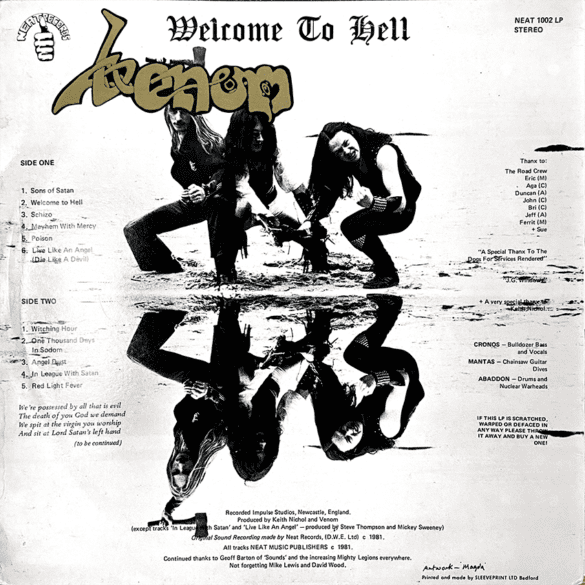
I remember looking at Welcome To Hell, and it scared me, but I also thought it seemed cool. It scared me in a way that made me want to check it out. My father, who studied to be a Catholic priest, saw it and wanted it out of our house. It caused a visceral reaction.
We were deliberately out there to shock. There’s a big Baphomet, the album is called Welcome To Hell, and the lead single is called “In League With Satan.” How much more blatant do you want it? (laughs).
Were you, Conrad and Tony surprised at the splash the record made?
There was no thought either way. It just seemed like everything carried us along. I think we took some things for granted. I don’t think metal bands today could do what we did on the scale we did it. Even the biggest bands today are playing clubs. We went from zero to hero overnight. I’m not saying it was because of our brilliance. It was just because the world was ready for something different. There was a lot of curiosity about Venom. I bet a lot of early album sales and ticket sales were just curiosity. I don’t know how many of those people converted to lifelong fans. We were just onstage bludgeoning our way through whatever we could. It’s no fucking secret that we weren’t the best musicians on the planet. We still aren’t.
The first international show we did was in Belgium in 1982. We’d been rehearsing in this horrible, rundown church hall. The following week we’re in this hall in front of thousands of kids. I remember standing on stage when the local crew started bringing in our equipment. This guy walked past me singing, “somewhere in time/we were born.” And I said: “How the fuck does he know that?” We didn’t know the impact we made until the 1984 Seven Dates Of Hell tour. The places were packed. We didn’t have a massively long, successful career, but we did have a period of Venom mania. We had police escorts to shops and restaurants; restaurants closed so we could have a meal…
You were even a pull-out in Circus Magazine, which was essentially the hair metal bible.
To this day, people tell me stuff like that. (laughs). I discover stuff years later. It blows my mind. The majority of those early songs were written with almost zero musical ability. We did whatever we could with what I knew on the guitar and recorded it.
And people went apeshit.
Forty years later, I’m still getting interviewed about it (laughs). I’m proud of it.
The Afterlife of Welcome To Hell
Are there any songs you love on the record? Any that you don’t care for?
When people ask what my favorite Venom album is, I say Welcome To Hell because it’s the record that started everything. I remember getting my copy from Neat Records and taking it home. Song-wise there is nothing I don’t like. I remember taking “Witching Hour” into rehearsal for the first time. “Sons Of Satan” was essentially written by Conrad. That track had to be the opener. We deliberately made sure when the needle went down, it went right into the song.
Tony (Bray) left Venom Inc., and you and Conrad haven’t had a relationship for a long time. Is it bittersweet that you changed the world with these guys, and you can’t get together and collectively appreciate what you did?
Absolutely. We are estranged. I think it’s very sad. There isn’t bitterness as much as disappointment. Conrad and I used to be very close. Abaddon and I were also very close at one point. I’m doing a thing on Patreon, and I share videos. There are a few videos from the reunion period around 1996-1997. They’ve never been seen and are in rehearsals. The three of us are laughing so much. It’s incredible. I have a photo on my phone of the last picture Neil Peart took before he died. Those three guys (from Rush) look so happy to be together and be in each other’s company. I was jealous of that photo.
I don’t think the three of you need to play together again. Tony Dolan and Kling are fantastic and do both old and new material with authority. It’s just that only three of you went on that maiden journey together.
I’ve come to appreciate and take ownership of that. Conrad has his inception of Venom now. I permitted him to use the name, which was a mistake. But the guys in his band have no Venom history behind them. It’s like Tommy Thayer and Eric Singer in KISS. They don’t have a legacy. But I appreciate what you’re saying. It’s very sad when bands that had such an impact can’t get together.
You probably weren’t thinking this album would be released worldwide, and I won’t see a cent from much of it.
To this day, I’ve never seen an official Neat Records royalty statement. Not one.
Millions of people own Welcome To Hell.
I don’t know how many copies. A guy came over to me at a wedding and looked me straight in the face and said: “Jeff? You must be worth a fucking fortune.” And I went: “Really? How the fuck did you get that?” He said: “Venom.” I said: “Ripped off.” He was one of the owners of an independent record store in Newcastle in the early to mid-80s, and they couldn’t keep up with the amount of Venom vinyl they sold.
What are some of the stories people have told you about this record and what it means to their lives?
Many of them are similar to your story; parents didn’t want the album in the house or found the album in the house and destroyed it. I heard that so many times. I’ve heard from people who had to sneak the record into the house like a porno magazine. The one thing in common was how people held the needle over the groove and let it hover before they dared to put it down. What the hell is this going to be? One of the best chapters in my upcoming book is all written by the fans. (The album) united a lot of people and divided a lot of people. As I said, the whole experience of this thing – and however it worked out for me, Conrad, and Bray – is very humbling. No one knew it would become this huge legend. All I can say is thank you at the end of the day. Without the support of the people who bought an album or went to a gig, we wouldn’t be having this conversation.
Interestingly, a record that is outwardly divisive and confrontational is also a perfect example of the power of human connection. People have tattoos of the cover. Fans talk about the record in groups and share memories. It’s timeless.
Even listening to what you just said is a holy shit moment. I don’t take this for granted at all. It steamrolls and humbles you. I’ve always struggled with my self-worth and my confidence. Offstage I’m so quiet it’s unbelievable. On stage is a release for me. The Mantas guy is not me – I’m Jeff. But it’s nice to let him out to play. You have to keep your feet on the ground at the same time. This record kicked a lot of doors down. Every forest fire needs a spark. We were the spark.

